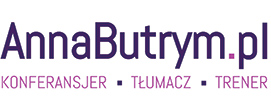Polecam Wam ciekawy artykuł, będący podsumowaniem badań nad wielojęzycznością mieszkańców poszczególnych krajów w Europie. Z opracowania raportu 2012 Eurobarometer Report “Europeans and their languages” wybrałam fragmenty tyczące się Węgier:
The European policy objective of a trilingual population (national language, English, another language) is already met by the majority of the population in Luxembourg (84%), the Netherlands (77%), Slovenia (67%), Malta (59%), Denmark (58%), Latvia (54%), Lithuania (52%) and Estonia (52%). By contrast, the countries furthest away from this objective include Portugal and Hungary (13% in each), the UK (14%) and Greece (15%).
At the same time, not all findings of the 2012 Eurobarometer Report “Europeans and their languages” give cause for optimism, as knowledge of languages has decreased considerably in some countries vis-à-vis the 2006 Eurobarometer Report “Europeans and their languages”. The proportion of respondents able to speak at least two languages has declined considerably in these five countries:
- Slovakia (-17 percentage points to 80%)
- the Czech Republic (-12 percentage points to 49%)
- Bulgaria (-11 percentage points to 48%)
- Poland (-7 percentage points to 50%)
- Hungary (-7 percentage points to 35%)
Within these countries the proportions of respondents able to speak foreign languages such as Russian and German have declined notably since 2005. For example, the proportion able to speak Russian has dropped in Bulgaria (-12 points), Slovakia (-12 points), Poland (-8 points) and the Czech Republic (-7 points). Similarly, the proportions speaking German are down in the Czech Republic (-13 points), Slovakia (-10 points) and Hungary (-7 points). It is likely that in these post-Communist countries these downward shifts are the result of a ‘lost’ generation. Many of those who were able to speak German (following the Second World War) or who learnt Russian at school (it is now much less commonly taught) are now deceased, or, as time has elapsed, have forgotten how to speak these languages.
The global hegemony of English works in mysterious ways: not only is it closely tied to the monolingual mindset in English-speaking countries but apparently it can also result in monolingualism in Bulgarian, Czech, Hungarian, Polish or Slovakian!
